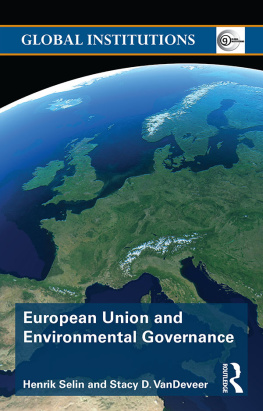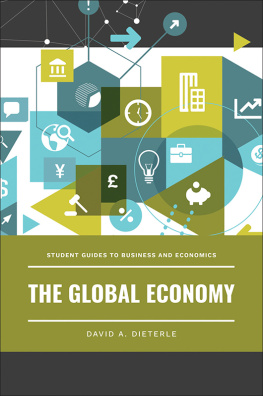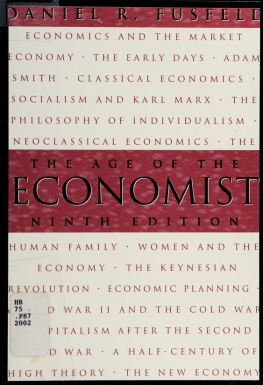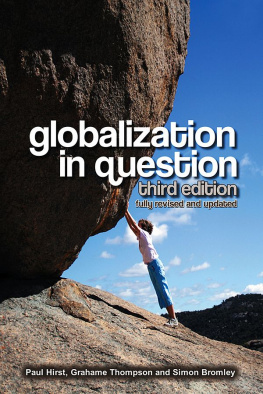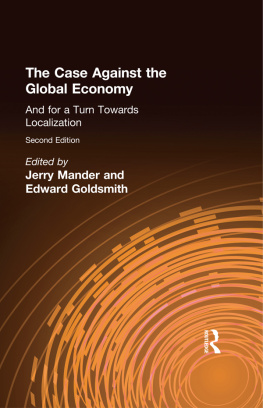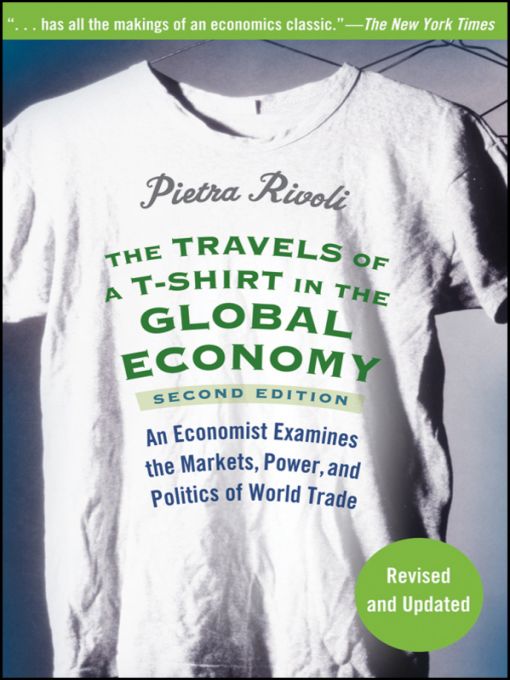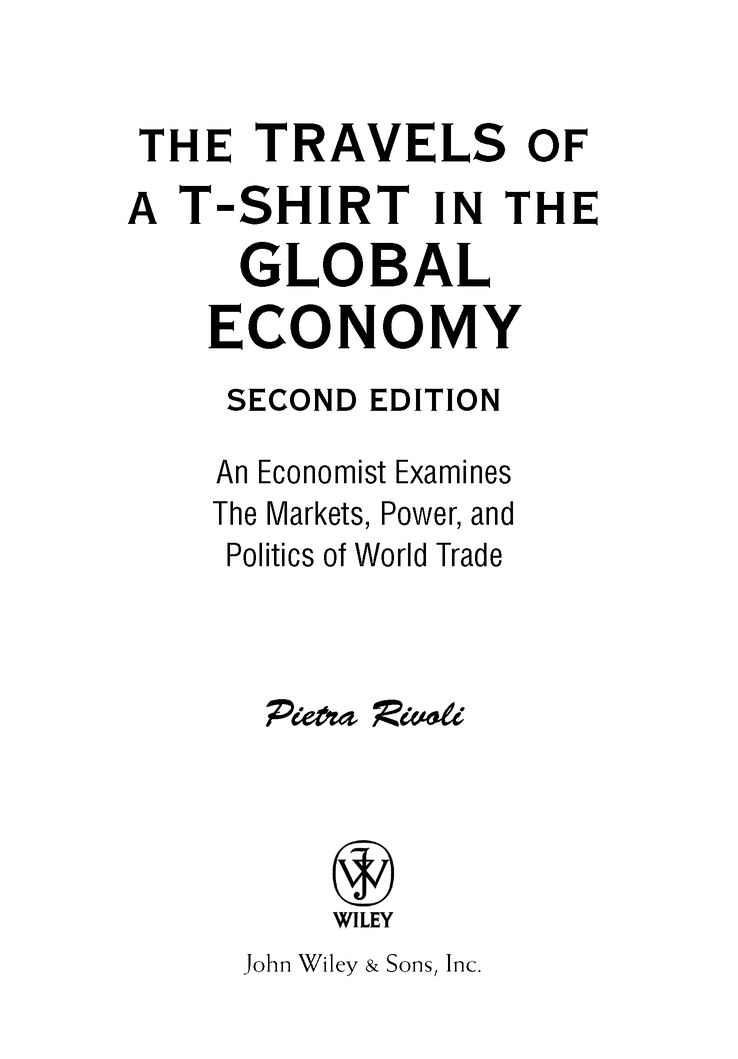Table of Contents
International Praise for Travels of a T-Shirt, 2nd Edition
This charming, intelligent narrative debunks myths on both sides of the globalization debate. Mixing historical perspective with current events, the book highlights that its not market forces but avoiding them that creates winners in world trade a rich tapestry of globalization past and present that focuses on real people to rip fabrications on all sides of the debate a great read.
Asia Times
Dont miss this unusual book on economics.
The Hindu
... thought-provoking Regardless of your stance on global economics, you will find a lot to agree with and a lot to think about in Travels of a T-Shirt.
The China Daily
For Dennis, Annalisa, and Denny
PREFACE TO THE SECOND EDITION
How Student Protests Sent a Business Professor around the World
On a cold day in February 1999 I watched a crowd of about 100 students gather on the steps of Healy Hall, the Gothic centerpiece of the Georgetown University campus. The students were raucous and passionate, and campus police milled about on the edge of the crowd, just in case. As speaker after speaker took the microphone, the crowd cheered almost every sentence. The crowd had a moral certitude, a unity of purpose, and while looking at a maze of astonishing complexity, saw with perfect clarity only the black and white, the good and evil. Corporations, globalization, the International Monetary Fund (IMF), and the World Trade Organization (WTO) were the bad guys, ruthlessly crushing the dignity and livelihood of workers around the world. A short time later, more than 50,000 like-minded activists had joined the students at the annual meeting of the WTO in Seattle, and by the 2002 IMF-World Bank meeting, the crowd had swelled to 100,000. Anti-globalization activists stymied meetings of the bad guys in Quebec, Canada, and Genoa, Italy, as well. At the 2003 WTO meeting in Cancun, the activists were joined by representatives from a newly energized group of developing countries, and world trade talks broke down across a bitter rich-poor divide. Anti-globalization activists came from college campuses and labor unions, religious organizations and shuttered textile mills, human rights groups and African cotton farms. Lumped together, the activists were named the globalization backlash.
At first, the backlash took the establishment by surprise. Even the left-leaning Washington Post, surveying the carnage in Seattle, seemed bewildered. What Was That About? they asked on the editorial page the next day. From the offices on the high floors of the IMF building, the crowd below was a ragtag bunch of well-intentioned but ill-informed obstructionists, squarely blocking the only path to prosperity. According to conventional economic wisdom, globalization and free trade offered salvation rather than destruction to the worlds poor and oppressed. How could the backlash be so confused?
The backlash seemed to quiet by about 2005. Phew, the business establishment seemed to say, Glad thats over with. But a closer look reveals that nothing was really over with, and that, in fact, the reverse had happened. While some of the craziest slogans (Capitalism is Death) had faded away, the backlash was not gone, but had gone mainstream. Surveys showed that Americans were markedly less supportive of trade and globalization in 2008 than they had been at the beginning of the decade: while 78 percent of Americans surveyed had a positive view of international trade in 2002, by 2008, only 53 percent were broadly supportive. Americans were also less supportive of trade than citizens of virtually every other industrialized country.
In Washington, Congress responded to this popular discontent by stymieing further trade liberalization, and the 2008 presidential candidates responded with sound bites strangely similar to those of the 1999 protestors. By 2008, the WTO talks that had been stalled by protestors in Seattle and Cancun were still stalledafter nearly eight years of mostly fruitless negotiations. While the negotiations had been difficult in the best of times, the severe economic downturn that began in late 2008 left little hope for the revival of the trade tasks.

Back at Georgetown in 1999, I watched a young woman seize the microphone. Who made your T-shirt? she asked the crowd. Was it a child in Vietnam, chained to a sewing machine without food or water? Or a young girl from India earning 18 cents per hour and allowed to visit the bathroom only twice per day? Did you know that she lives 12 to a room? That she shares her bed and has only gruel to eat? That she is forced to work 90 hours each week, without overtime pay? Did you know that she has no right to speak out, no right to unionize? That she lives not only in poverty, but also in filth and sickness, all in the name of Nikes profits?
I did not know all this. And I wondered about the young woman at the microphone: How did she know?
During the next several years, I traveled the world to investigate. I not only found out who made my T-shirt, but I also followed its life over thousands of miles and across three continents. The result of this investigation was the first edition of Travels of a T-Shirt, published in 2005. The book wasand isa story about globalization and about the people, politics, and markets that created my cotton T-shirt.
It is fair to ask what the biography of a simple product can contribute to current debates over global trade. In general, stories are out of style today in business and economics research. Little of consequence can be learned from stories, the argument goes, because they offer us only anecdotal data. According to todays accepted methodological wisdom, what really happened at a place and timethe story, the anecdotemight be entertaining but it is intellectually empty: Stories do not allow us to formulate a theory, to test a theory, or to generalize. As a result, researchers today have more data, faster computers, and better statistical methods, but fewer and fewer personal observations.
The story, of course, has a more esteemed role in other disciplines. Richard Rhodes, in his Pulitzer Prize-winning book, The Making of the Atomic Bomb, peels back, layer by layer, the invention of the atomic bomb. In the process, he illuminates the intellectual progress of a community of geniuses at work. Laurel Ulrich, in A Midwifes Tale, uses the diary of a seemingly unremarkable woman to construct a story of a life in the woods of Maine 200 years ago, revealing the economy, social structure, and physical life of a place in a manner not otherwise possible. And in Enterprising Elites, historian Robert Dalzell gives us the stories of Americas first industrialists and the world they built in nineteenth-century New England, thereby revealing the process of industrialization. So, the story, whether of a person or a thing, can not only reveal a life but illuminate the bigger world that formed the life. This is my objective for the story of my T-shirt.
Does the world really need another book about globalization? Jagdish Bhagwati asked in the introduction to his 2004 book on the topic. Well, certainly the world does not need another tome either defending or criticizing globalization and trade as abstract concepts, as the cases on both sides have been made eloquently and well. I wrote


